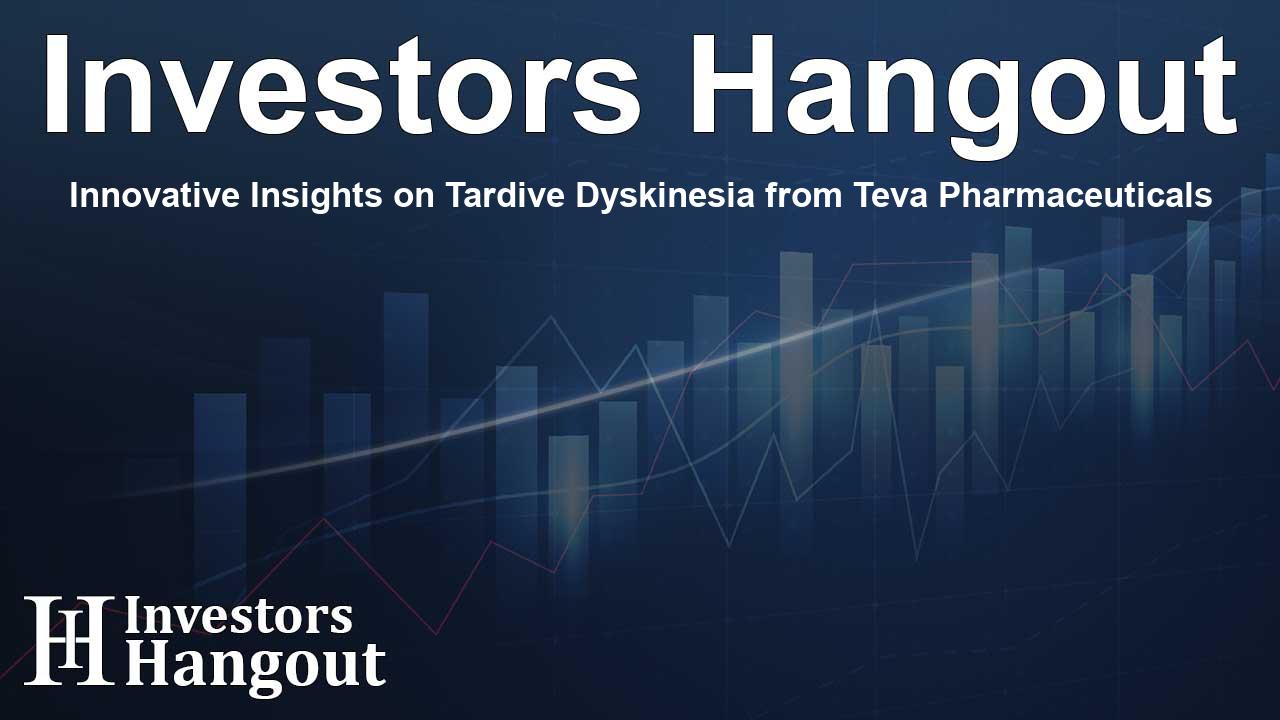Innovative Insights on Tardive Dyskinesia from Teva Pharmaceuticals

Teva Pharmaceuticals Reveals New Findings on Tardive Dyskinesia
Teva Pharmaceuticals has made significant strides in understanding tardive dyskinesia (TD) through their recent research. The results, drawn from the extensive IMPACT-TD Registry, highlight the profound effects of TD on patients' quality of life, indicating that regardless of an individual’s underlying mental condition, the burden remains high. This pivotal registry is recognized as the largest study of its kind, and its findings are essential for evolving treatment practices.
IMPACT-TD Registry Outcomes
New data originating from the Phase 4 IMPACT-TD Registry presents a comparative analysis of patients suffering from TD who also experience mood disorders and those with psychotic disorders. Interestingly, the study revealed that only 36% of patients with psychotic disorders were diagnosed with TD, which contrasts with 50% of those suffering from mood disorders. The similarities and differences in these diagnoses underscore the necessity for enhanced monitoring and treatment protocols.
Demographics and Characteristics of Participants
The study encompassed a diverse group of participants, with notable demographic trends emerging. Patients with psychotic disorders tended to be younger, with an average age of 48 compared to 55.5 for those with mood disorders. In terms of racial diversity, 36% of patients with psychotic disorders identified as Black or African American, which is notably higher than the 9% observed in individuals with mood disorders. These distinctions provide a deeper understanding of the population affected by TD.
Impact of Tardive Dyskinesia on Daily Life
Both groups reported similar impacts of TD on their lives. Clinicians recorded a moderate to severe impact on the quality of life for 86% of patients with psychotic disorders, compared to 80% amongst those with mood disorders. This finding signals an urgent need to address the management of TD effectively to improve life quality for all affected individuals.
Patient Satisfaction with AUSTEDO
Amid these findings, Teva also highlighted patient experiences with their treatment, AUSTEDO XR (deutetrabenazine). A recent survey involving 131 adults being treated with AUSTEDO XR revealed overwhelming satisfaction: 87% reported overall satisfaction, while 74% noted improvements in undesired movements. This shows that AUSTEDO XR is positively impacting the lives of many individuals facing these challenging disorders.
Real-World Experiences of Patients
Furthermore, more than three-quarters of participants felt that a reduction in their extra movements led to improvements in their social comfort and emotional well-being. With 98% of respondents affirming that AUSTEDO XR was easy to integrate into their daily lives, it is clear that patient acceptance plays a crucial role in treatment efficacy.
The Broader Context of Mental Health
In the U.S., mental illness affects over 57 million individuals, with approximately 14 million reported cases of serious mental health conditions. With one in four patients on specific mental health medications experiencing symptoms of TD, the importance of awareness and early intervention is clearer than ever. Tardive dyskinesia can severely interfere with everyday activities, making support and proper care crucial for those diagnosed.
Understanding Tardive Dyskinesia
Tardive dyskinesia (TD) is a chronic and often debilitating disorder characterized by involuntary and repetitive movements, which may be misinterpreted or overlooked. Increased use of antipsychotic medications has correlated with a rise in TD cases, which emphasizes the necessity for education among healthcare providers and patients alike about its signs and symptoms.
Teva's Commitment to Innovation
Teva Pharmaceutical Industries Ltd. (NYSE: TEVA) stands at the forefront of addressing challenges related to mental healthcare, consistently working to pioneer new treatments and gather vital real-world data. Their commitment extends beyond medications, focusing on improving the overall quality of healthcare and addressing equity gaps within mental health.
Frequently Asked Questions
What is tardive dyskinesia?
Tardive dyskinesia is a chronic disorder characterized by uncontrollable movements, often resulting from long-term use of certain mental health medications.
How does AUSTEDO XR help patients with TD?
AUSTEDO XR has been shown to significantly improve the symptoms of tardive dyskinesia, contributing to increased patient satisfaction and quality of life.
What demographic trends were noted in the IMPACT-TD Registry study?
The study highlighted that patients with psychotic disorders were generally younger and had a more diverse racial demographic compared to those with mood disorders.
What are the serious side effects associated with AUSTEDO?
AUSTEDO may lead to adverse effects including sedation, parkinsonism, and an increased risk of depression and suicidal thoughts in specific patient populations.
Why is it important to address tardive dyskinesia in mental health care?
Addressing tardive dyskinesia is critical for enhancing the quality of life and daily functioning of patients affected by movement disorders related to mental health treatments.
About The Author
Contact Riley Hayes privately here. Or send an email with ATTN: Riley Hayes as the subject to contact@investorshangout.com.
About Investors Hangout
Investors Hangout is a leading online stock forum for financial discussion and learning, offering a wide range of free tools and resources. It draws in traders of all levels, who exchange market knowledge, investigate trading tactics, and keep an eye on industry developments in real time. Featuring financial articles, stock message boards, quotes, charts, company profiles, and live news updates. Through cooperative learning and a wealth of informational resources, it helps users from novices creating their first portfolios to experts honing their techniques. Join Investors Hangout today: https://investorshangout.com/
The content of this article is based on factual, publicly available information and does not represent legal, financial, or investment advice. Investors Hangout does not offer financial advice, and the author is not a licensed financial advisor. Consult a qualified advisor before making any financial or investment decisions based on this article. This article should not be considered advice to purchase, sell, or hold any securities or other investments. If any of the material provided here is inaccurate, please contact us for corrections.
